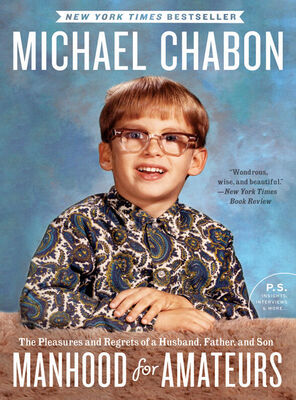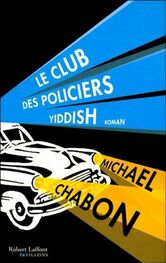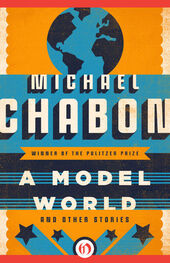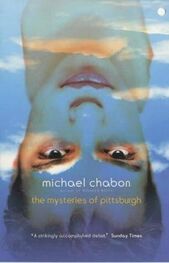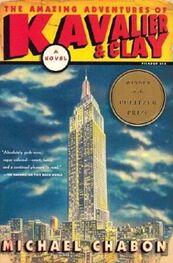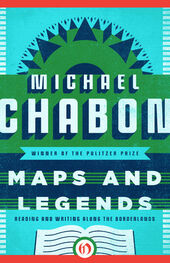Daughter of the Commandment

My oldest child became a bat mitzvah in an afternoon Sabbath service. She read from the Torah in flawless Hebrew, taught us something about what she had just read in poignant English, and was blessed by a woman of readily apparent holiness. And then she was on her way: a daughter of the Commandments.
Now, everyone knows — sorry, Maimonides — that there really is only one Commandment and that, sooner or later, we all obey it. Toward the end of every Sabbath service, those in mourning or observing the anniversary of a parent’s death rise for the ancient Kaddish, and as the parent of that day’s bar or bat mitzvah, you can sit there beaming, proud, filled with love and knowing — knowing — that if you have done your job properly, it will not be long before your child will be getting up from a pew somewhere to take note in Aramaic of your own utter absence from the world.
This poignance, this sense of the sweet and brutal passage of time, is a key part of what one is supposed to feel at weddings and bar mitzvahs. These ceremonies break your heart; they are designed, as A. B. Giamatti wrote of baseball, to break your heart. Autumnal thoughts are inevitable as you watch your child lay a first tentative foot on that high scrabbly hillside and look up, shading her eyes from the dazzle, toward the rest of her life. I can remember being thirteen and feeling stifled, half drowned, by the corniness of it any time some aunt at the piano took up the minor notes of “Sunrise, Sunset” and all the adults wiped their eyes and wondered where my infancy and their youth and all the days had gone. But you know what? I spent hours putting together an iTunes playlist for us to dance to at the reception after the service, soliciting suggestions via e-mail from a team of party-mix experts, black-belt Snoopy-style dancers, and former part-time semiprofessional soi-disant DJs, a process that resulted in a selection of tracks glorious and replete and nearly perfect, with Prince (“Kiss”), New Order (“Bizarre Love Triangle”), and L.T.D. (“Every Time I Turn Around, Back In Love Again”), and yet the song that reached right down to the very core of me was the final tune of the evening, the only tune you need, Mickey Katz’s perfect, wordless one minute forty-eight second dance-band version of, God help me, “Sunrise, Sunset.”
So, all right, swiftly fly the years, I get it. What a tiresome, empty observation, finally, when compared to You don’t have to watch Dynasty to have an attitude or Every time I see you falling / I get down on my knees and pray . Anyway, apart from that minute and forty-eight seconds of melancholy bliss with Katz and his clarinet, that’s not what I found myself thinking about yesterday: She is young and strong, and I am graying, have acid reflux, and my neck hurts, and soon I am going to be dead, true though all of those statements may be. First of all, I feel that I am in the prime of my life. I have never understood more (though still very few) of life’s mysteries than I do now, or trusted my instincts to a greater degree, or written better sentences than the ones I find myself writing sometimes these days. In spite of the creaky neck and the occasional needle of fire in my belly, my bones, joints, and organs remain more or less in good working order. Recently, I was reading the latest, last Nathan Zuckerman novel, and I felt nearly as distant from its protagonist’s physical decline and preoccupation with onrushing mortality as I might have twenty years ago.
It’s not that I never find entertaining the cheery notion, for example, that my life is quite probably at least half over. That idea can be an instructive, and I don’t doubt that most of us benefit from thoughtfully confronting our mortality on a regular basis. But in the end, memento mori is only going to get you so far, and as a buzzkill at parties, it’s second only to breaking out pictures of your kid’s head coming out of your wife’s vagina.
And looking at my fine half-grown daughter as she led the afternoon service, her slender neck arched like a feat of engineering, her alto steady, clear, and shining like the silver pointer that she clasped in her hand as it traced the path of the Hebrew letters on the parchment before her, I found myself considering not time’s passage but its unfathomable stillness, its immobility, the great universal fiction that there is such a thing as time. Your children’s childhoods as you watch them unscroll are always indexed to your own, visibly and invisibly, their incidents and episodes, pleasures, and calamities snarled with your own. Your childhood, or your memory of it, is present in every moment of theirs, answering it and prefiguring it and shadowing it like a continuo. And then every so often something happens to erase all sense of difference between you, as on one of those multigenerational Star Trek s when the old Enterprise and the new both show up fifty years apart, at the same quantum singularity, a gateway through time, and Captains Kirk and Picard take each other’s measure. There is no future and no past, and they are both in the prime of their lives. There is only ever now, and they each inhabit it.
Like gravitational wormholes in the fabric of the universe, children collapse time and space around themselves. I was standing just behind Sophie for part of the time that she spent reading from the Torah, and her silver yad, its tip formed in the shape of an effete little pointing hand, seemed to careen down the column of ancient text, to fly like the thirty-one years gone since the day that I had stood in a dusty-rose three-piece suit with white piping at the lapels, reading from that crazy old rolled-up book of lies, laws, and wonders. We hoisted our prayer shawl higher and swallowed, took a breath, then set off again down the column of Hebrew letters. For an instant, past and future perfectly coincided. She was not rising and I was not setting. Because the lives of a child and a parent are not a pair of counterweights, dragging the hands of a clock around its sorry dial, one rising and the other falling at exactly the same inexorable rate of gears and passing seconds. Or perhaps they are, but if so, it’s a process that is happening still, much too slowly for me to see it. All I could see that day for an hour or so, in that high sunny room with a blue-painted ceiling and everyone we love and care about around us, was my wife and my daughter and me, neither passing nor being passed but here together for a while, hanging out in the middle of life.
We are so accustomed to thinking of ourselves, of our lives and histories, in terms of the succession of generations—“Let the word go forth from this time and place … that the torch has been passed to a new generation”—that we no longer even question the validity or truth of the idea, which, apart from the most strictly biological sense, has no real meaning and no basis at all in the way we live those lives or experience our histories as they unfold. There is only one time, and one life, and we all share them, and if there is a torch, then it is far too cumbersome and heavy to be passed.
When the dancing began — we started, of course, with a hora — I escorted my daughter to a sturdy chair, and then a bunch of us, young men and old, graceful and ungainly, stout and fit, took hold of the legs and hoisted her up. There were far more of us than chair legs or places to grab them, and yet somehow, lurching and laughing and tripping over our own and one another’s feet, we got her up into the air and managed to dance. She tossed and shone like a torch as we carried her around the room, all of us working together to trace our passage across the dance floor, like the silver yad flying along the letters of the oldest story in the world. I looked up at her, grinning and beautiful and terrified and happy, and felt not the same old “time is fleeting and we are all mortal” but something finer and simpler and harder even to bear in mind. This is our life happening, I told her, or would have told her if I could have caught my breath long enough to say it over the clamor of the clarinet and fiddle, and it’s happening right now .
Читать дальше